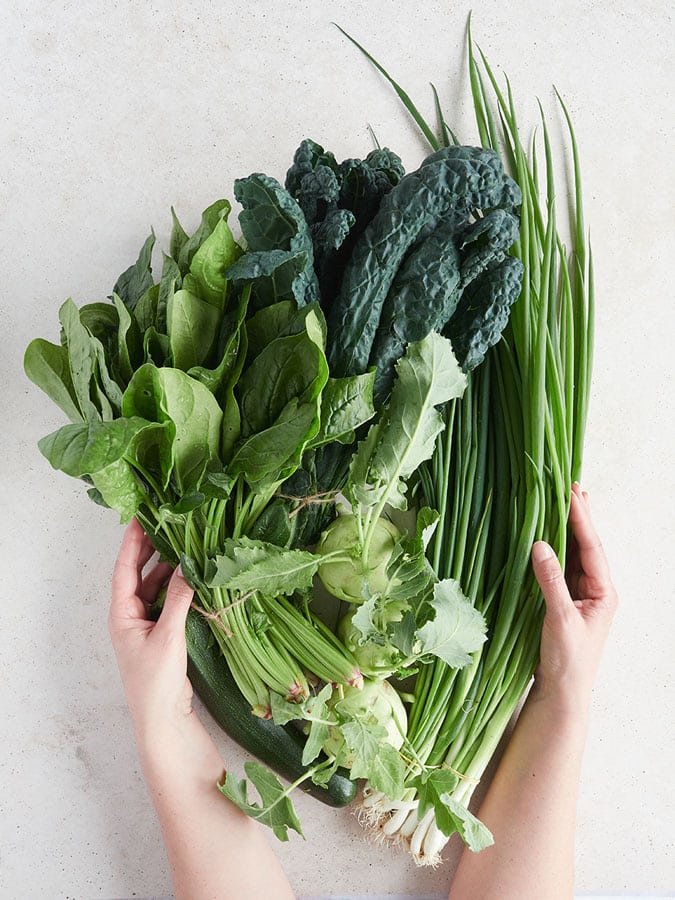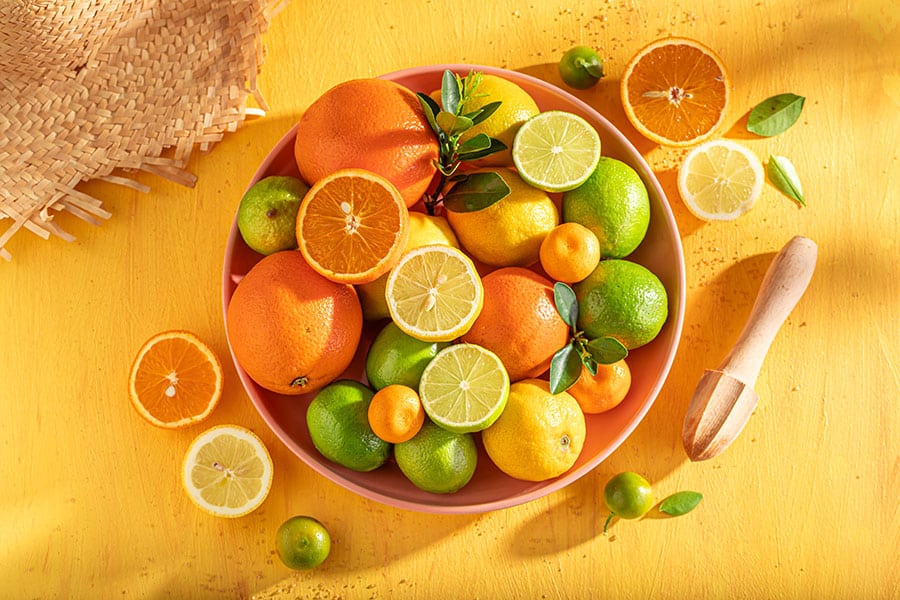While it’s easy to overlook the connection between nutrition and eye health, the food we eat plays a meaningful role in how well our eyes function over time. Of course, protective eyewear, regular exams, and medical care are all critical—but so is what’s on your plate. Good nutrition supports overall wellness, and your eyes are no exception.
Maintaining a diet that supports eye health doesn’t have to be complicated. Many common, accessible foods contain key nutrients that promote the long-term health of your retinas, macula, and other vital parts of the eye. By incorporating more leafy greens, oily fish, citrus fruits, eggs, and nuts into your routine, you can naturally boost your intake of essential vitamins, minerals, and antioxidants to protect against vision loss and age-related eye conditions.
At Barnet Dulaney Perkins Eye Center, we’re committed to a holistic approach to eye care, including education, prevention, and empowering our patients to make choices that support lifelong vision. With that in mind, here are a few nutrient-rich foods worth adding to your diet:

1. Green, Leafy Vegetables
There are several nutrients present in nature that help promote your eye health. For example, lutein and zeaxanthin are carotenoids that reduce the likelihood you will develop cataracts or macular degeneration. You can only get lutein and zeaxanthin from foods or supplements in your diet, as your body does not produce them naturally. Green, leafy vegetables are an excellent source of these nutrients.
Hundreds of carotenoids exist in nature, but less than 20 are present in the human body. Regarding your eyes, lutein and zeaxanthin are the only relevant carotenoids. They function primarily as antioxidants for healthy cell growth and maintenance. Lutein and zeaxanthin also filter out harmful blue light and ensure a clear crystalline eye lens.
Free radicals can cause retinal damage, and the antioxidant function of these nutrients counteracts free radicals and the buildup of cataracts. They also prevent age-related macular degeneration (AMD), a condition related to the thinning of the macula that can seriously affect vision, even to the point of blindness.
There are many benefits to eating green, leafy vegetables and high levels of lutein and zeaxanthin for eye health, but only a few. A serving of vegetables is typically a half-cup, but you must eat more a week to gain these benefits for your eyes. You do not have to eat them raw to get these carotenoids, although raw is usually considered the best method. Add them to a smoothie or even bake them into chips. Increasing your consumption of these vegetables can help you achieve your goal of a lifetime of healthy eye function, along with excellent preventative care and treatment from Barnet Dulaney Perkins Eye Center.
2. Salmon, Tuna, and Other Oily Fish
A 2023 meta-analysis involving over 51,000 participants assessed the impact of various dietary patterns on age-related eye diseases. The study concluded that regular consumption of fish and plant-based foods was associated with a reduced risk of developing age-related eye diseases, while higher intake of red meat was linked to an increased risk.
To be healthy, you have to eat some fat. However, there are good fats, and there are the best ones for your health. Two fats classified as Omega-3 fatty acids are beneficial for proper eye function. They are known as Docosohexaenoic Acid (DHA) and Eicosapentaenoic Acid (EPA).
DHA is found in the retina more than any other part of the body, and EPA works to create DHA. According to the American Optometric Association, if you do not eat enough foods containing these fats, you run a greater risk of developing chronic dry eyes and other conditions. In a 2005 study of nearly 40,000 women, researchers found that those who ate the least of these good fats had an increased risk of developing dry eye symptoms or requiring dry eye treatment over time. To get a nice boost of these fats, add a few 3-ounce servings of salmon, tuna, or other oily fish to your weekly meal plan. Omega-3 pills are also acceptable.
These fatty acids are present in almost all types of fish or shellfish, but some sources are better than others. According to the U.S. Department of Agriculture, red and black caviar has the highest content of these fats. However, you would need to consume an overly large serving of caviar (and spend a lot of money) to get the same benefits.
These oily fish do not provide high levels of mercury, which may be a concern for you. You can enjoy unlimited quantities of salmon or whitefish without worrying about mercury levels. Still, the Natural Resources Defense Council suggests you limit tuna consumption to three servings or less per month.

3. Citrus Fruits
Vitamin C is one of the most important vitamins for your body, especially for your eyes and brain. Many delicious foods are rich in Vitamin C. Fresh foods and green, leafy vegetables are important sources. You can get almost all of your recommended daily value of Vitamin C just by eating a small orange daily. Vitamin C, an antioxidant, is particularly healthy for your eyes. A regular dose of the vitamin can stave off the development of AMD and cataracts and ensure proper eye function.
Experts at Oregon Health & Science University discovered in 2011 that Vitamin C is far more important to the function of the eye and brain than was previously thought. Your eyes’ retinas are considered part of your central nervous system, and it must maintain high levels of Vitamin C to function properly.
You probably already know you can get lots of Vitamin C from your diet. If you want the best results, the National Eye Institute claims that 500 mg of Vitamin C each day from a combination of foods can decrease the development of AMD and related loss of visual acuity by about a quarter. It is a simple change with many benefits for your eyes and overall health.
4. Eggs
If you ever needed a reason to enjoy egg yolks, you now have one. You now know how important it is to eat foods that contain lutein and zeaxanthin, and eggs are rich in both. They also contain high levels of zinc, which you need to help prevent AMD. The standard recommended is 12 to 16 mg.
Zinc is an essential trace mineral that helps transfer Vitamin A from the liver to the retina (and elsewhere) to produce melanin. Melanin is the pigment that defines your hair, skin, and eye color and protects the eyes. In particular, the retina and the choroid, the layer of tissue under the retina, need zinc.
Of course, you may worry about eating too many eggs and getting high cholesterol. Eating one egg a day can improve your lutein and zeaxanthin levels without risking the accumulation of unhealthy cholesterol. A 2006 study noted that adults over age 60 who ate one egg a day for five weeks had an increase in lutein and zeaxanthin levels without noticing a significant difference in total cholesterol or triglycerides.
Since the development of cataracts and AMD is particularly problematic for older adults, as are health conditions related to high cholesterol, this study shows that moderate egg consumption is a great idea. We at Barnet Dulaney Perkins Eye Center are happy to recommend good minerals and vitamins based on your unique needs and vision concerns.
5. Nuts
Many people love to eat nuts these days, and you are about to discover why. You can get about half of your recommended daily Vitamin E value in one serving of nuts. You may already use Vitamin E oil to minimize the development of lines and blemishes in the skin around your eyes. Did you know that Vitamin E is also excellent for your eye health? Almonds, in particular, are rich in Vitamin E. Nuts are also a great source of protein and unsaturated fats as a part of a healthy diet.
If you are allergic to nuts, you can still enjoy many of the same benefits by eating a similar serving of sunflower seeds.
Protecting Your Vision Starts on Your Plate
Incorporating nutrient-rich foods like leafy greens, oily fish, citrus fruits, eggs, and nuts into your routine doesn’t require a complete lifestyle overhaul. These everyday choices can fuel your eyes with the antioxidants, vitamins, and minerals they need to stay healthy, reduce your risk of conditions like AMD and cataracts, and help preserve your sight well into the future.
A balanced diet becomes a powerful tool in your vision wellness strategy when paired with regular eye exams and expert care. So, the next time you plan a meal, remember: your eyes are counting on you.
If you have questions about your eye health or want to learn more about preventative care and treatment options, our Barnet Dulaney Perkins Eye Center team is here to help guide you through every step. Schedule a comprehensive eye exam today!
Related sources: 36 Fabulous Foods to Boost Eye Health

